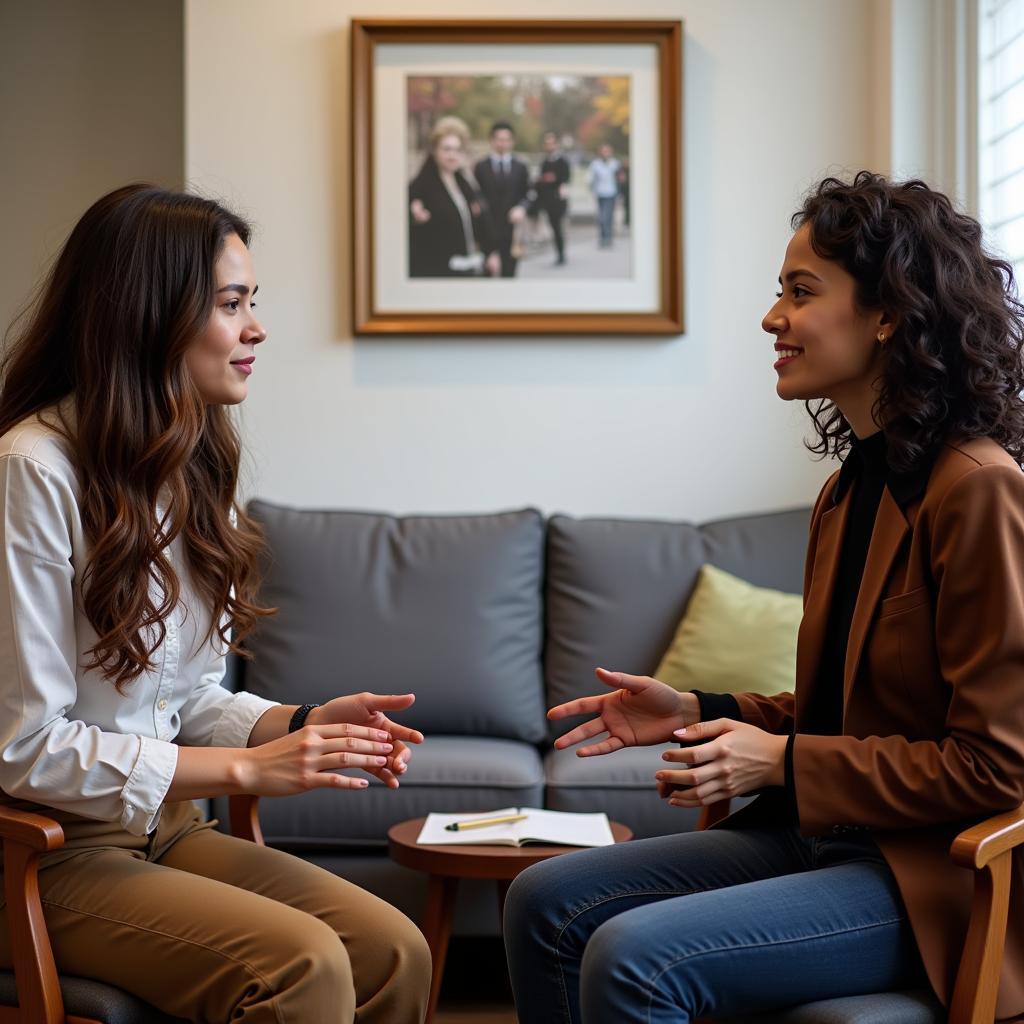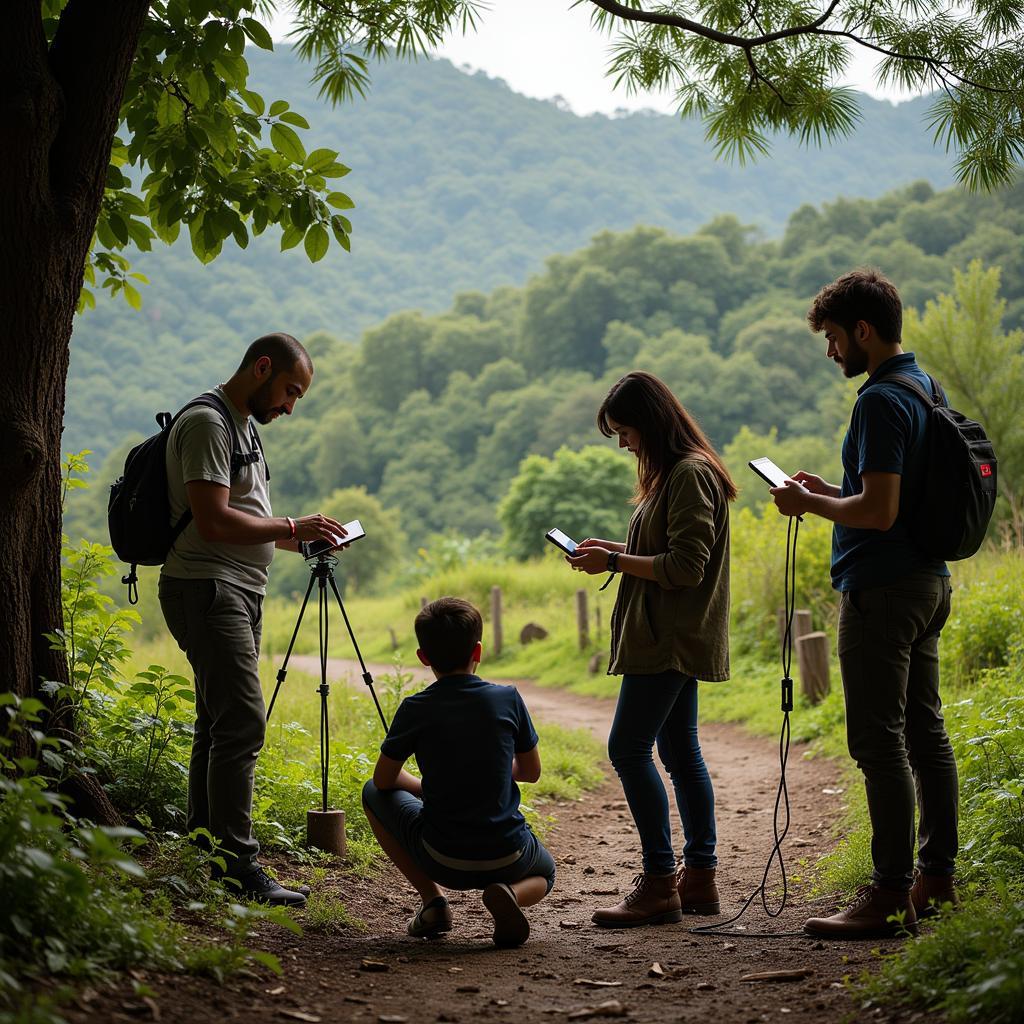The Society For Applied Anthropology (SfAA) plays a vital role in fostering cross-cultural understanding, a key ingredient for peacebuilding in our interconnected world. By applying anthropological insights to real-world challenges, the SfAA contributes to conflict resolution, sustainable development, and social justice.
Understanding the Society for Applied Anthropology
The SfAA represents a diverse community of professionals dedicated to using anthropological methods and theories to address contemporary social issues. Their work spans various sectors, from public health and education to environmental conservation and human rights. By examining the complexities of human behavior within specific cultural contexts, applied anthropologists offer valuable perspectives for creating positive change and promoting peaceful coexistence.
How Does the Society for Applied Anthropology Promote Peace?
Applied anthropology contributes to peacebuilding in several crucial ways:
- Conflict Resolution: By understanding the root causes of conflict, including cultural misunderstandings and power imbalances, applied anthropologists can facilitate dialogue and mediation between conflicting groups. They provide a framework for addressing grievances and building trust, paving the way for peaceful resolutions.
- Cultural Preservation: Respect for cultural diversity is essential for a peaceful world. Applied anthropologists work to preserve and revitalize indigenous cultures, recognizing their inherent value and promoting intercultural dialogue.
- Sustainable Development: By integrating local knowledge and cultural values into development projects, applied anthropologists ensure that these initiatives are sustainable and beneficial for all stakeholders, reducing the potential for conflict over resources and promoting equitable growth.
- Social Justice Advocacy: Applied anthropologists often work with marginalized communities, documenting human rights violations and advocating for social justice. Their work empowers communities to participate in decision-making processes and challenge oppressive structures, contributing to a more just and peaceful society.
 Applied Anthropology in Conflict Resolution
Applied Anthropology in Conflict Resolution
The Importance of Cultural Understanding for Peace
In an increasingly globalized world, cultural understanding is more critical than ever for achieving peace. Misunderstandings and misinterpretations arising from cultural differences can escalate into conflict if not addressed effectively. The SfAA recognizes this crucial link and promotes cultural sensitivity and empathy as essential tools for peacebuilding.
Why is Cultural Sensitivity Important?
Cultural sensitivity involves being aware of and respecting the differences between cultures. It requires a willingness to learn about and appreciate other people’s beliefs, values, and practices, even if they differ from our own. This understanding helps to break down stereotypes and prejudices, fostering mutual respect and trust.
The Future of the Society for Applied Anthropology in Peacebuilding
The SfAA continues to play a vital role in promoting peace and social justice in the 21st century. As global challenges become increasingly complex, the need for anthropological insights and expertise will only grow.
What are the Emerging Trends in Applied Anthropology?
- Technology and Social Media: Applied anthropologists are increasingly using digital tools to connect with communities, conduct research, and disseminate information. Social media platforms offer new opportunities for promoting intercultural dialogue and fostering global understanding.
- Climate Change and Environmental Justice: As climate change impacts communities around the world, applied anthropologists are working to understand the cultural dimensions of environmental issues and promote equitable solutions.
- Global Health and Pandemics: The COVID-19 pandemic highlighted the importance of cultural understanding in addressing global health challenges. Applied anthropologists are playing a crucial role in developing culturally appropriate health interventions and promoting vaccine equity.
“Applied anthropology provides a unique perspective on human behavior, allowing us to see beyond simplistic explanations and understand the complex web of factors that contribute to conflict and peace,” says Dr. Sarah Jones, a leading researcher in applied anthropology at the University of California, Berkeley. “By embracing cultural diversity and promoting understanding, we can build a more just and peaceful world for all.”
 The Future of Applied Anthropology
The Future of Applied Anthropology
Conclusion
The Society for Applied Anthropology is a vital force in promoting peace and understanding in our complex world. By applying anthropological insights to real-world challenges, they contribute to conflict resolution, sustainable development, and social justice. Their work reminds us that cultural understanding is essential for building a peaceful and prosperous future for all.
“The work of the Society for Applied Anthropology is crucial for addressing the complex challenges facing our world today,” notes Dr. David Chen, Professor of Anthropology at Columbia University. “By promoting intercultural dialogue and understanding, they contribute to building bridges across divides and creating a more peaceful future.”
FAQ
- What is applied anthropology?
- How can I become an applied anthropologist?
- What are some examples of applied anthropology projects?
- How does the SfAA contribute to peacebuilding?
- What are the career opportunities for applied anthropologists?
- What is the relationship between culture and peace?
- How can I get involved with the SfAA?
Related Questions:
- What are the ethical considerations in applied anthropology?
- How does applied anthropology contribute to sustainable development?
- What are the challenges and opportunities for applied anthropology in the digital age?
For further information and support, please contact us at Phone Number: 02043854663, Email: [email protected] or visit our address: Khu 34, Bac Giang, 260000, Vietnam. We have a 24/7 customer service team available to assist you.